STEPPING UP - AN INTERVIEW WITH ROJEAN HEYER
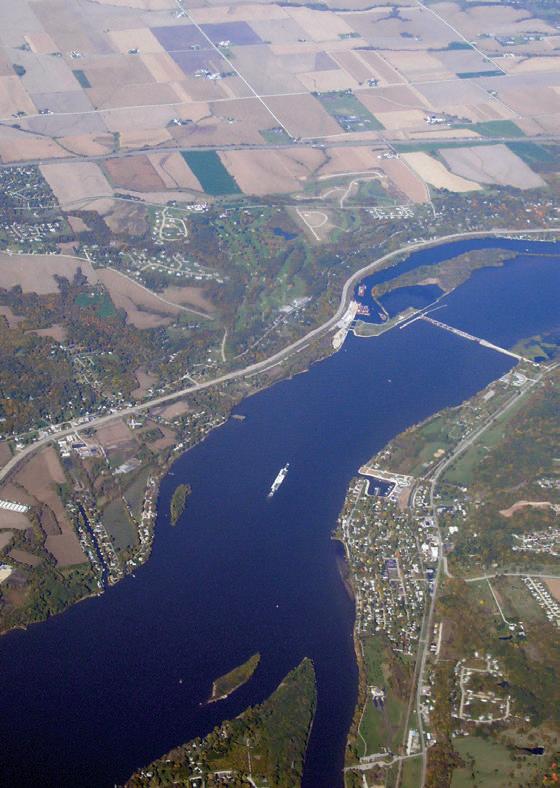
She's one of thousands of people who work on the Mississippi River to keep it safe for boats traveling along its length.
Why did you start working on the river?
I grew up around the La Crosse area in Wisconsin. I love anything outdoors. My dad used to take me to Lock and Dam 7. We'd fish off the wall there.
One summer after I graduated from college, the U.S. Army Corps of Engineers was looking for clerks. I worked that summer as a clerk at Lock and Dam 7 in La Crescent, Minnesota. I started working year-round as a clerk in 1982.
In 1989, the Corps came out with a program to get more women working on the lock. I applied. I had to complete two years working at a lock and dam. If I didn't care for it, I could get my clerk job back.
I absolutely loved it! It was basically outdoor work, putting boats through the lock. I worked a swing shift-one week I worked during the day, the next week I worked 4 p.m. to midnight, and the week after that I worked midnight to dawn. That was hard, but I made it through.
I became an operator on the locks and dams. I did that for a few years. Then I worked as a head operator before I became lockmaster at Lock and Dam 6 in Trempealeau, Wisconsin, in December 2011. I am one of three women lockmasters in the St. Paul district.
What does a lockmaster do?
A lockmaster is in charge of a site on river. There are 29 locks and dams between St. Paul and St. Louis. Each one has a lockmaster. Every morning, Water Management in St. Paul sends orders about whether we should open the dam gates or close the dam gates or just stay the same, to keep the water at the right level. My main job is to make sure everything is running smoothly and to ensure we have enough people on site to get boats through the lock safely.
Can you explain the lock and dam system?
Esta historia es de la edición April 2023 de Cobblestone American History Magazine for Kids.
Comience su prueba gratuita de Magzter GOLD de 7 días para acceder a miles de historias premium seleccionadas y a más de 9,500 revistas y periódicos.
Ya eres suscriptor ? Conectar
Esta historia es de la edición April 2023 de Cobblestone American History Magazine for Kids.
Comience su prueba gratuita de Magzter GOLD de 7 días para acceder a miles de historias premium seleccionadas y a más de 9,500 revistas y periódicos.
Ya eres suscriptor? Conectar
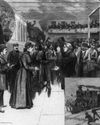
nellie Bly Journalist
nellie Bly's first newspaper articles appeared in print when she was just 20 years old.

Arabella Mansfield -Lawyer
Arabella Mansfield started out life as Belle Babb (1846-1911). She grew up in a Midwest family that valued education. In 1850, her father left to search for gold in California. He died in a tunnel accident a few years later.

Sarah Josepha Hale Editor
Long before Vogue or Glamour caught women's attention, Godey's Lady's Book introduced the latest fashions.

Louise Blanchard Bethune - Architect
Louise Blanchard Bethune (1856-1915) showed early promise in math. Lucky for her, her father was the principal and a mathematics teacher in a school in Waterloo, New York. Instead of going to school, Louise's father taught her at home until she was 11 years old. She also discovered a skill for planning houses. It developed into a lifelong interest in architecture and a place in history as the first professional female architect in the United States.
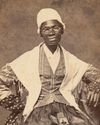
Sojourner Truth Speaker
There was a time when slavery wastes abolished the institution over a number of decades. New York abolished slavery in 1827. Isabella Baumfree (c. 1797-1883) was born enslaved in Hurley, New York. When she was nine, she was taken from her parents and sold. She then was sold several more times. Some of her owners were cruel and abused her. During that time, she had several children.

Getting Started
In this editorial cartoon, a young 19th-century woman must overcome the obstacle of carrying a heavy burden while climbing a multirung ladder before she can achieve \"Equal Suffrage.\"
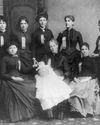
Leonora M. Barry - Investigator
When Leonora M. Barry (1849-1923) was a young girl, her family left Ireland to escape a famine. They settled in New York. Barry became a teacher. In 1872, she married a fellow Irish immigrant. At that time, married women were not allowed to work. So, Barry stayed home to raise their three children.

Finding a New Path
For many Americans, this month's mystery hero represents the ultimate modern trailblazer. She is recognized by just her first name.

The Grimké Sisters Abolitionists
Every night, Dinah was supposed to brush the E hair of her mistress, Sarah Moore Grimké (1792-1873). But one night, 12-year-old Sarah stopped Dinah. She wanted to help Dinah instead. They had to be quiet so they wouldn't get caught. It was 1804 in Charleston, South Carolina. The Grimkés were among Charleston's major slaveholding families. Strict laws regulated the behavior of both master and enslaved people.
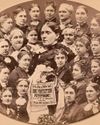
Frances Willard Leader
During Frances Willard's lifetime (1839-1898), she was the best-known woman in America: She headed the largest women's organization in the worldthe Woman's Christian Temperance Union (WCTU). In that role, her abilities shone as a social activist, a dynamic speaker, and a brilliant organizer. She educated women on how to run meetings, write petitions, give speeches, and lobby state and federal legislators.
